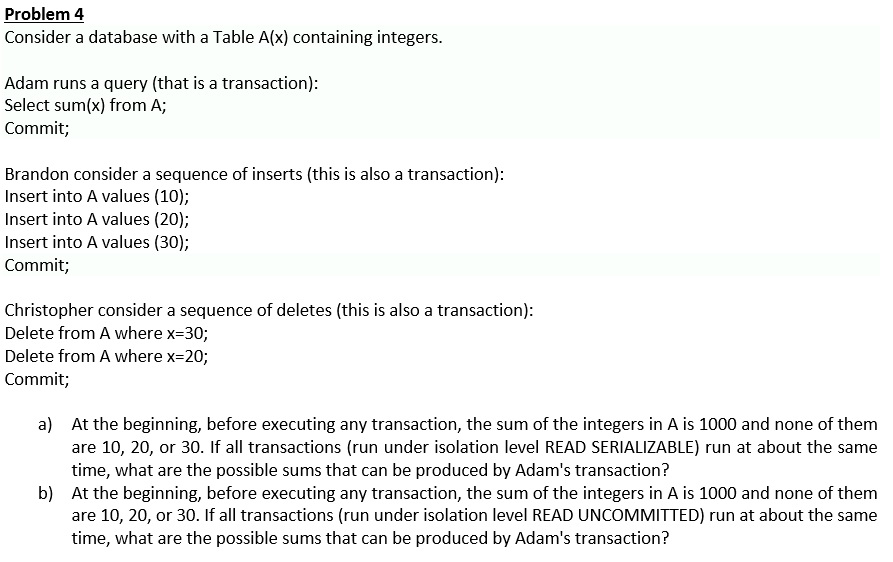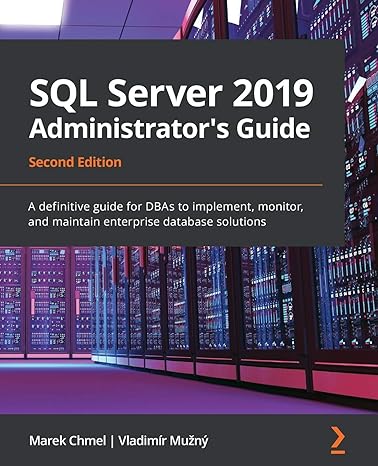Question
Consider a database with a Table A(x) containing integers. Adam runs a query (that is a transaction): Select sum(x) from A; Commit; Brandon consider a
Consider a database with a Table A(x) containing integers. Adam runs a query (that is a transaction): Select sum(x) from A; Commit; Brandon consider a sequence of inserts (this is also a transaction): Insert into A values (10); Insert into A values (20); Insert into A values (30); Commit; Christopher consider a sequence of deletes (this is also a transaction): Delete from A where x=30; Delete from A where x=20; Commit; a) At the beginning, before executing any transaction, the sum of the integers in A is 1000 and none of them are 10, 20, or 30. If all transactions (run under isolation level READ SERIALIZABLE) run at about the same time, what are the possible sums that can be produced by Adam's transaction? b) At the beginning, before executing any transaction, the sum of the integers in A is 1000 and none of them are 10, 20, or 30. If all transactions (run under isolation level READ UNCOMMITTED) run at about the same time, what are the possible sums that can be produced by Adam's transaction? 
Step by Step Solution
There are 3 Steps involved in it
Step: 1

Get Instant Access to Expert-Tailored Solutions
See step-by-step solutions with expert insights and AI powered tools for academic success
Step: 2

Step: 3

Ace Your Homework with AI
Get the answers you need in no time with our AI-driven, step-by-step assistance
Get Started


